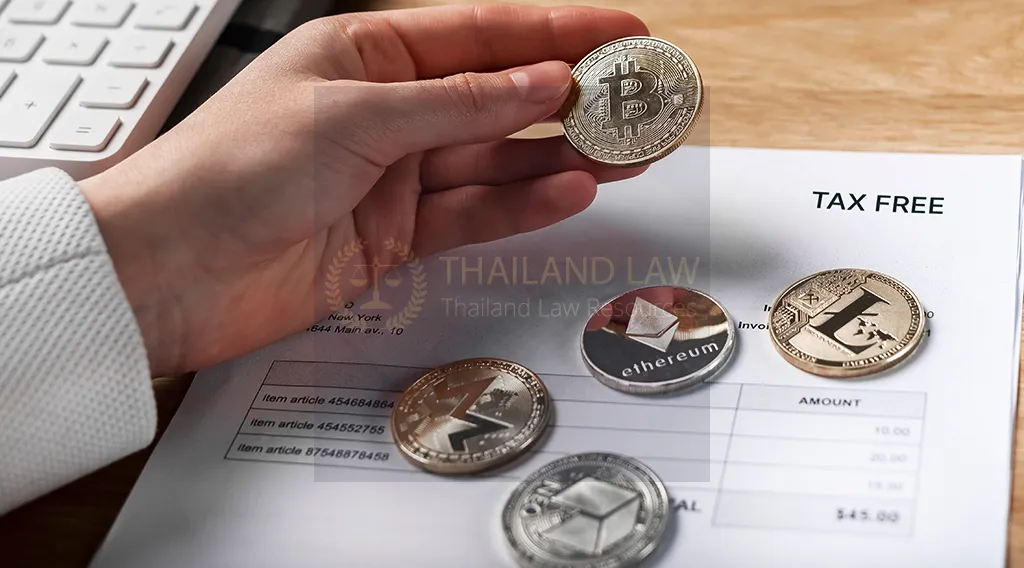A new ministerial regulation published in the Royal Gazette on September 8, 2025, introduces a limited-time tax exemption for capital gains from cryptocurrency transactions in Thailand. This provides a window of relief for digital asset investors—but with specific conditions and a fixed duration. Below is an overview of what the exemption entails and how it affects both domestic and foreign investors.
How Crypto Was Taxed in Thailand Before
Prior to this regulation, profits earned from trading cryptocurrencies—gains above the acquisition cost—were considered assessable income and subject to Thailand’s income tax regime. Traders were required to calculate their capital gains, declare them, and pay taxes according to their applicable income bracket.
Additionally, cryptocurrency transactions were previously subject to Value Added Tax (VAT). However, in 2024, a Royal Decree permanently exempted VAT on crypto trades conducted through licensed brokers or approved platforms. This reform aimed to ensure that legitimate digital asset activities in Thailand remain within the regulated framework.
What the New Exemption Provides
Under the new regulation, capital gains derived from digital asset trading are exempt from Thai income tax when conducted through licensed Thai exchanges, licensed brokers, or regulated dealers. In effect:
-
Gains made via regulated trading platforms are not taxed.
-
The exemption applies only to transactions completed through authorized entities.
-
Investors must maintain accurate documentation of acquisition costs to validate their exemption claims.
This means qualified investors may keep their crypto gains in full—provided the transactions are properly documented and carried out through compliant channels.
Considerations for Foreign Investors
The tax holiday is especially relevant for foreign individuals or funds participating in Thailand’s crypto sector:
-
Legitimacy requirement: Only trades conducted through licensed Thai entities qualify for the exemption.
-
Supporting evidence: Investors must maintain thorough records of purchase prices, trade dates, and transaction volumes.
-
Regulatory clarity: The new rule provides a more transparent environment for crypto market participants in Thailand.
-
Monitoring for updates: As this measure is temporary, investors should stay informed of potential amendments or extensions.
When the exemption applies and ends?
This tax exemption is a temporary measure. It applies only to digital assets acquired between January 1, 2025, and December 31, 2029. After this period, capital gains from crypto trading will again fall under Thailand’s standard income tax laws unless the government extends the policy.
Investors therefore have a five-year window to benefit from tax-free crypto gains under Thai law.
Important Caveats and Compliance Tips
Even within the exemption period, investors must remain vigilant:
-
Regulatory updates: Future changes may revise or replace the current tax relief.
-
Other obligations remain: Reporting requirements, transaction fees, and anti-money laundering rules still apply.
-
Recordkeeping: Investors should keep complete and verifiable records for each transaction.
-
Licensed platforms only: Using unauthorized exchanges could result in the loss of exemption eligibility.
For foreign investors, professional guidance from tax specialist in Thailand is recommended to ensure full compliance and to properly structure transactions within Thailand’s regulatory framework.
Legal Assistance for Digital Asset and Tax Compliance
If you are a foreign investor or resident trading cryptocurrencies in Thailand, this exemption offers a valuable opportunity, but it also carries compliance responsibilities.
To learn more about how this new policy affects your crypto portfolio or investment plans, contact Siam Legal team today for professional assistance and advice.




